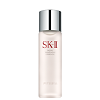Refund Policy
Only items purchased on SK-II.com (USA) with accompanying order information will be accepted for return or exchange.
If you have received a gift with purchase, you must return the gift along with your purchased product. If both the purchased product and accompanying gift are not returned, your return will not be accepted.
Your purchased product must be returned in order to receive a refund in the amount of your full purchase price or exchange. If you return your purchased product in accordance with this policy, your full purchase price excluding any shipping costs associated with the original order will be refunded to your original form of payment. Return process can take up to 7-10 business days from the time you return is received at our warehouse. Your credit card company determines when the credit will be reflected in your statement. It may take one full billing cycle for the credit to appear on your account.
Limit one return per name, household, or address on opened product(s). SK-II monitors return activity for abuse and reserves the right to limit returns or exchanges at SK-II.com in all instances, in its sole discretion.
Shipping Policy
What shipping methods are available, and what are the rates?
| Method |
Expected Delivery |
Rate |
| Standard Delivery |
5 - 8 Business Days |
$0.00 |
| Express Delivery |
2 Business Days |
$16.95 |
| Rushed Delivery |
1 Business Day |
$22.95 |
What should I do if I only received a partial shipment?
It is possible your shipment was split based on product availability, and that the missing items will be shipped when they become available. Please contact us at 1-866-678-1770 from 9am – 6pm EST Monday – Friday (except holidays) to report an incomplete shipment, and we will check the status of your missing items. We apologize for any inconvenience this may have caused.
What should I do if I think my shipment is lost?
Please contact us at 1-866-678-1770 from 9am – 6pm EST Monday – Friday (except holidays) and we will initiate a thorough search of your shipment with the transit company.
What should I do if my shipment arrived damaged?
If your order was damaged in-transit please contact us at 1-866-678-1770 from 9am – 6pm EST Monday – Friday (except holidays) to report a damaged shipment. We apologize for any inconvenience this may have caused.
Subscription Policy
What is Subscription?
SK-II Subscription is the most convenient way for you to get the products you want delivered to you on a regular schedule. We automatically send your favorite products based upon your chosen frequency. The service is easy to use and customizable, so you can make changes online whenever you need. Just tell us how often you want your products, and we'll take it from there. You will receive 5% off your first order, and 10% off recurring orders, and a free gift on orders over $200 on all qualified SK-II Subscription items.
You always have complete control over your SK-II Subscription orders and we send an email reminder 10 days before each order ships. You can change your delivery frequency, next order date, or quantity anytime by visiting the "Subscription Management" section located within your Club SK-II account. Changes to orders can be made any time before the next scheduled shipment date and you can cancel at any time.
What types of payment are accepted for SK-II Subscription?
All SK-II Subscription orders require a credit or debit card payment. Alternative payment forms, such as PayPal, Apple Pay, Google Pay, Afterpay cannot be accepted.
What will happen after I join SK-II Subscription?
After you join SK-II Subscription, you will receive an email confirming your Subscription order. This email will include a link to access the "Subscription Management" section in your account where you can manage your future orders, SK-II Subscription items and account information.
We will place your SK-II Subscription orders automatically according to your selected frequency, and you will only be billed on the day the order is shipped. We will email you reminder 10 days before each Subscription order. You will also receive email notifications regarding other important information related to your Subscription account, such as if your item is discontinued or out of stock, if you cancel your subscription, and confirmation when an order is placed successfully.








